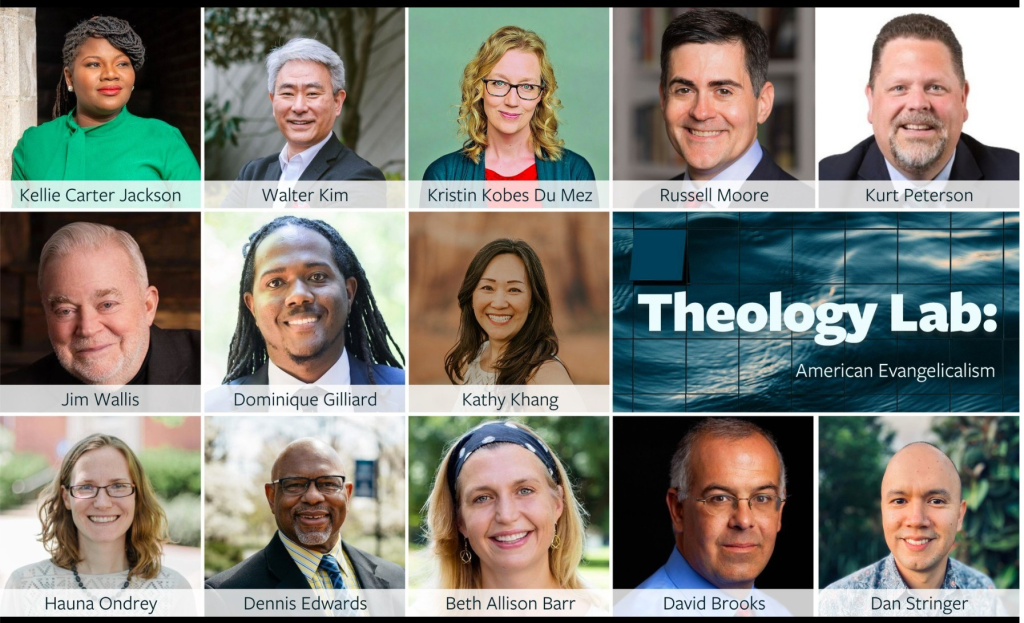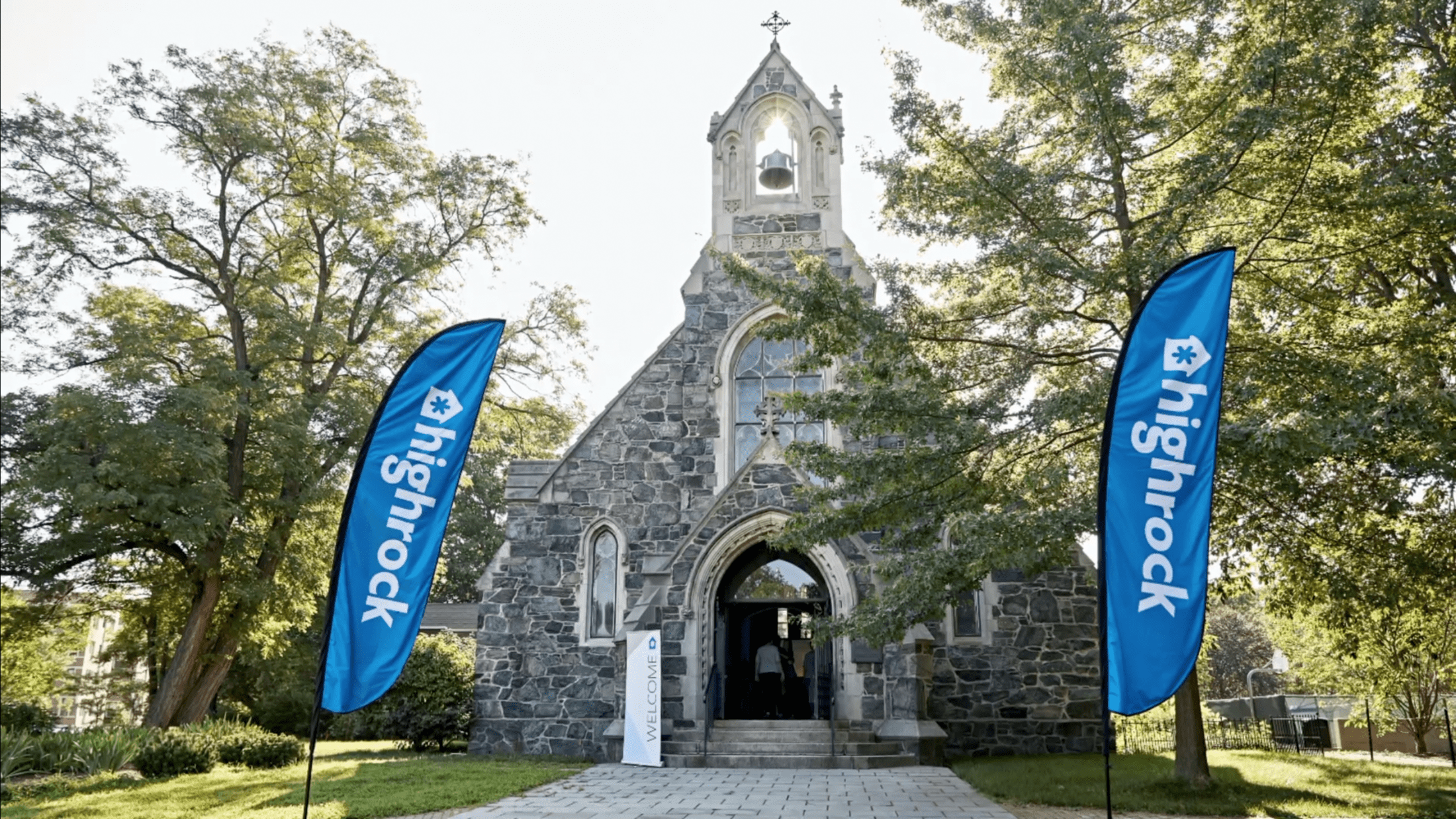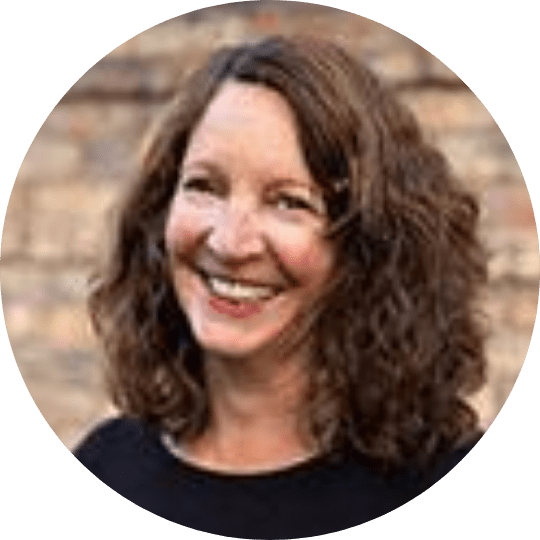Highrock Church in Massachusetts is hosting honest, courageous conversations on American evangelicalism.
Growing up in south-central Pennsylvania, Reuben Zeiset read Scripture every day with his family. It was the early-mid ’00s and, formed by evangelical culture, he listened to contemporary Christian music and Focus on the Family, and watched Adventures in Odyssey Club and Veggie Tales.
But his family didn’t necessarily identify as evangelical. They have Anabaptist Mennonite roots, and Zeiset says, “The word ‘Protestant’ had connotations that were too violent to us.” As a result, his relationship with the subculture was somewhat removed.
Evangelicalism, it turns out, is a complex movement with all sorts of Christians both claiming and eschewing the label.
Zeiset, who attends Highrock Church Cambridge, a Covenant congregation with campuses throughout Massachusetts, is intentionally wrestling with what it means to be evangelical these days. He’s doing that through Highrock’s Theology Lab, an online discussion group that focuses on the exploratory and communal nature of faith. Begun during the pandemic, Theology Lab has addressed a different topic each year, initially discussing theology and race, then perspectives on Black theology in 2020-21, and Asian American theology the following year.
“We don’t shy away from big questions,” says Scott Rice, who serves as Highrock’s resident theologian.
“At Theology Lab, posture is everything. And not just any posture, but one that’s marked by compassion, curiosity, and honesty.”
After the first couple of years, planners realized discussions were drawing a specific group of participants, yet a segment of their community wasn’t showing up. So this year they made a shift. “From a discipleship perspective, we’ve all been influenced by evangelicalism,” says Meghan DeJong, co-lead pastor of Highrock Online and co-organizer of Theology Lab.
The theme of American evangelicalism is a response to growing concerns about what it means to identify as evangelical. Rather than erecting walls or fences, Theology Lab seeks to courageously ask questions and discuss difficult topics together. They began this season by inviting Covenant guests, with the intention of discerning how a Covenant identity helps navigate questions around community, division, and reading Scripture. Other guests have included Kristin Kobes Du Mez and Walter Kim, with David Brooks and Jim Wallis on the coming lineup.
“Our discussions are about opening up a space to talk together as a community about the big questions within evangelicalism, such as Christian nationalism, race, and gender in the church,” says Rice.

When Kristin Huang, a primary care physician, joined Theology Lab this year, she was wondering if evangelicalism can be saved. “After Donald Trump won 81 percent of the white evangelical vote in 2016, I seriously questioned my affiliation with evangelicalism,” she says. Huang grew up in evangelical and evangelical-adjacent churches, including a Christian Reformed Chinese immigrant church; a large, predominantly white Evangelical Free church; and a Korean American youth group affiliated with the Southern Baptists.
At the time of the election, she was learning about other faith traditions within Christianity that both pursued Jesus and also allowed room for questions, doubts, and mysteries. “Yet evangelicalism is so ingrained in my spiritual DNA that I wanted to examine it more closely,” she says. “Theology Lab is the first evangelical-birthed space that I’ve encountered where questions and outside viewpoints are encouraged and discussed without fear or condemnation. For so much of my life, I was taught that questions and doubts were a sign of weak faith, which in turn led me to believe that I was fundamentally unredeemable.”
But, she adds, “What I now believe is that being open to questions and doubts leads us to more authentic grappling with God, which can deepen our faith.”
Mark Olson participates in Theology Lab from his home in Bellingham, Washington. The retired Covenant pastor and member of Bellingham Covenant Church says he appreciates the technology that makes the project possible. “Why aren’t more people doing things like this? It’s such a great model. This technology is bringing value to discussions with a wide range of people. I’ve found that to be tremendously helpful and life-giving.”
Olson adds, “In particular, it seems to me that we’ve been on a trajectory of being increasingly local and regionalized as a church. But our strength has been in our national identity. This technology brings a wider group of people into the space—that’s such a good thing.”
The lab, which meets monthly, includes a Conversation Covenant, which is an agreement to demonstrate respect and grace toward every participant, regardless of how the conversation unfolds. The covenant includes commitments to act in good faith, focus on what each individual can change, take responsibility for the conversation, and approach the dialogue with good humor.
“I’m so thankful that Theology Lab makes room so that I don’t have to do this alone, and so that I can learn from diverse viewpoints in community with others,” Huang says. “I absolutely value the ‘big tent’ approach of the Covenant and the desire to dialogue and be inclusive. It would get boring if we all agreed on every issue. As an activist at heart, I struggle with how it seems to bring the church to a default position of stasis, which we know benefits those who already hold power. My question for the Covenant is how we will make positive change for those who are marginalized when the majority of people in our congregations and in our leadership have vested interests in maintaining the status quo.”
She continues, “One thing I’ve learned about the Covenant that I really appreciate is its emphasis on doing things in community; in particular, reading the Bible in a diverse community. That framework has been helpful for me as I’ve genuinely struggled with scriptural interpretation and how it’s normally done recently.”
The year 2016 was the first time Zeiset, now 26, was old enough to vote in a presidential election. Zeiset, who considers himself fairly conservative theologically, says the church has failed in its mission by allowing itself to be identified—or even actively aligning itself—with one political party. “Doing so has given up our witness as a distinctive ambassador of the kingdom of God,” he says. “As a result, we’ve placed our hope where hope should not be placed. Much of the rhetoric I hear from evangelicals is describing their trust in the conservative movement generally, in America as a whole. Frankly, I think that’s idolatrous and blatantly contradictory to Christianity and our trust in Christ and his kingdom.”
Zeiset adds that he deeply values the evangelical love of Scripture. “This text is the one God gave to us. It is God’s gift to us. It has been used as a weapon, rather than a source of life, but overall the evangelical insistence upon reading and studying Scripture is something the rest of the church can learn from.”
The next Theology Lab is February 19 with guests Kathy Khang and Covenant pastor Dan Stringer. To attend, register here >>














